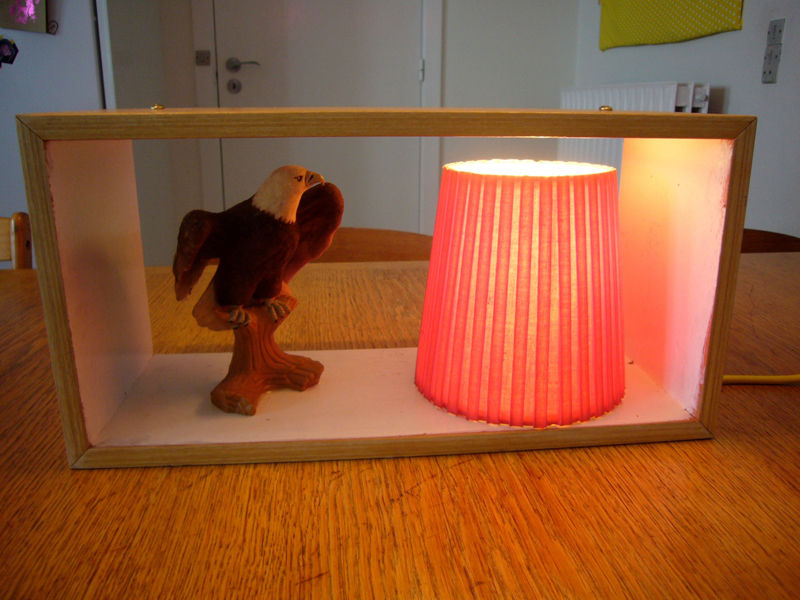
Kenneth Balfelt and kHaled Barkeh have been invited by Muse®um Skive to create an art project in public space as part of an exhibition project by seven museums in Jutland about the seven deadly sins - connected to Kulturby 2017 Aarhus.
We want to create an exciting new urban space along the river in Skive city. For this we will work with four partners: newly arrived refugees, citizens, the municipality and ourselves. Around the three topics: Envy, Urban Development and Resources/Exchange.
We believe that by working together we can create something unique - both in how it looks, what it means and what it produces for the city and the community.
Artists (project managers)/Museum
Khaled and Kenneth are both working with social and political issues in their art. We also work with processes together with people to create concrete or reflections on social change.
Khaled was born in Syria in 1976 and trained as an artist in Damascus, Odense and Frankfurt. http://khaledbarakeh.com
Kenneth was born in Denmark in 1966 and trained as an artist in London.
Skive Muse®um is a hybrid museum covering art, archaeology, natural history and history, as well as interdisciplinary topics. The museum has taken the initiative for the project and invited the two artists to create a project in the public space with envy as the theme.
Refugees
We want to work with all newly arrived refugees of all ages and both men and women. Most of them are from Syria, Eritrea and Somalia, but all nationalities are welcome in the project.
When we talk to the refugees, they mention that they want to be activated, get involved and give something back to Skive. We also believe that in order to belong, we have to contribute.
Municipality
We want to collaborate with both the political and administrative levels of the municipality. We are in contact with the political Urban Development Committee, the Technical and Environmental Administration, the Job Centre and the private Skive Handel.
Citizens
In all urban developments, we want to involve the citizens, and in this project it is crucial to involve the citizens. Both as people who know their city, their needs and wishes for the future of the city, but also as part of the exchange between the four partners that can lead to new innovative solutions along the river and for Skive in general.
CONCEPT AND TOPICS
Envy
We work with the following definition of envy:
Mortal sin of envy: In the Catholic tradition, envy is a sin because the envious person fails to see their own strengths and possibilities and strives for another condition instead of working on their own. Envy is an emotion that can lead to the desire to have someone else's attributes, status, reputation or property. Envy can be a driving force in various human relationships because the basic substance is longings, needs and unused talents that through a process can be used constructively.
The project is not religious - we are interested in mortal sin as a cultural value in our society.
Urban planning
As artists, we are focused on both form (the physical result) and content (how we understand it). Therefore, we think process, values and ethics, transparency and involvement are just as important as the physical outcome. That's why we see urban planning as a process that creates community, new friendships and conflict resolution. We want to give the physical result - the public space along the stream - a symbolic content.
A space should be based on equality. We are in the same space, but we don't have to do the same thing or talk to each other - just be in the same space and we see others doing what they are doing, which then creates an awareness and a connection between us. I see you, you see me - there are many ways of doing things, we all have a place and role here. It produces knowledge about others. Creates acceptance and tolerance.
Resources - Exchange
We see all people as having resources that can contribute to the development of a city like Skive. The new refugees in Skive have resources that we need to find and utilise. When we arrived at Venligboerne Skive's meeting with refugees at the library, the first thing the refugees did was to put all the tables together in one long row so that all the guests could sit at the same table. This is a great example of how someone with new ideas can contribute to and challenge our ideas and structures.
The courage to talk to strangers on the street and meet new people in the public space is something refugees could perhaps read us. Because breaking the ‘social mask’ we often wear makes Danes happy - we actually like talking to and getting to know others.
To access these ideas that refugees as well as artists, citizens and the municipality have, we need exchange. So through the process of creating a new public space, we want to initiate this exchange between people. And in the new urban space, we want this exchange to continue.
PROCESS
Together with refugees and the municipality, we want to make a plan for involving citizens in the design and construction of the new urban space along the stream. We want to work with the urban space by the railway bridge.
TIMETABLE
The exhibition opens on 4 February 2017. We therefore need a process of 3-5 months to produce a plan for the urban space project. After the opening, we can then start building for 3-6 months.
OUTCOME.
We want to create a concrete new public space along the river in Skive, as a contribution to the exchange of ideas and resources as well as an enjoyable recreational meeting place for people in Skive.

